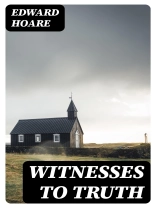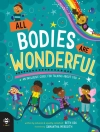In ‘Witnesses to Truth, ‘ Edward Hoare embarks on a profound exploration of the human experience, weaving together intricate narratives that interrogate the boundaries of truth and perception. His literary style, characterized by lyrical prose and rich imagery, invites readers into a world where personal testimonies collide with the broader spectrum of societal truths. The book resonates within a contemporary literary context that grapples with issues of authenticity in the age of information, reflecting Hoare’s adeptness at navigating complex themes with sensitivity and insight. Edward Hoare, an acclaimed author with a background in philosophy and social advocacy, draws upon his extensive experiences in exploring the moral dilemmas that humanity faces. His compelling insights are influenced by his travels and interactions with diverse cultures, leading him to delve deep into the nature of belief, truth, and the realities that shape our lives. Hoare’s unique perspective informs his narrative craft, resulting in a work that is both intellectually stimulating and emotionally resonant. ‘Witnesses to Truth’ is a must-read for those seeking to understand the intricate relationship between personal narratives and societal beliefs. It challenges readers to reflect on their own perceptions of truth and the stories they choose to tell. This book is not merely a collection of narratives; it is a vital discourse that calls for introspection and open-mindedness in an increasingly polarized world.
A propos de l’auteur
Edward Hoare, not to be confused with E. M. Hoare (a different historical figure involved in theological writings), possibly remains an enigma due to a lack of extensive public documentation of his life and work. As the author of ‘Witnesses to Truth’, Hoare seems to delve into the realm of spiritual inquiry and the exploration of religious or philosophical convictions. ‘Witnesses to Truth’ suggests a narrative that could intertwine personal faith journeys with broader theological or ethical considerations, potentially aimed at a readership invested in personal growth through introspective and existential contemplation. Given the specificity of the author’s name and the reference to his book, one could infer that his literary style gravitates towards reflective and analytical prose, often characteristic of those who write on such profound and personal subject matter. However, in the absence of more substantial information regarding Edward Hoare’s broader literary contributions, academic involvements, or his historical timeline, it becomes challenging to craft a comprehensive scholarly biography. Unless further details emerge revealing a more extensive bibliography or contributions to literary or philosophical discussions, Edward Hoare’s footprint in the literary world remains lightly tread and shrouded in modest mystery.












